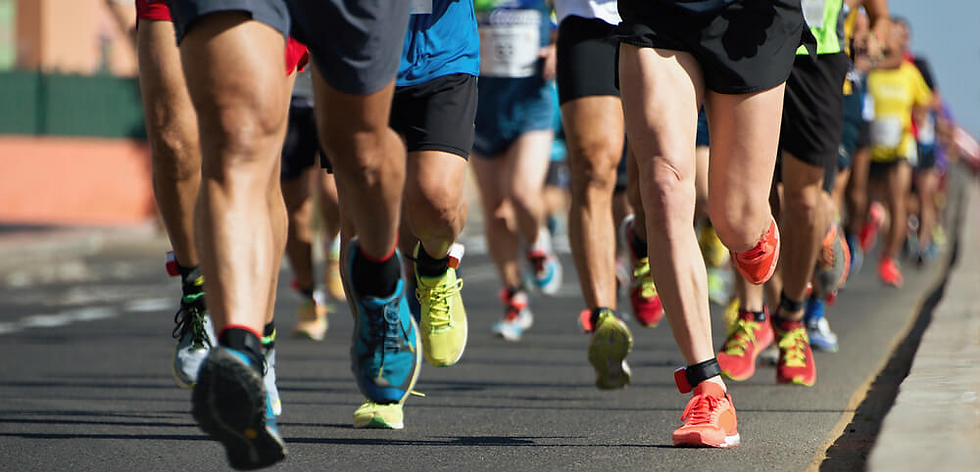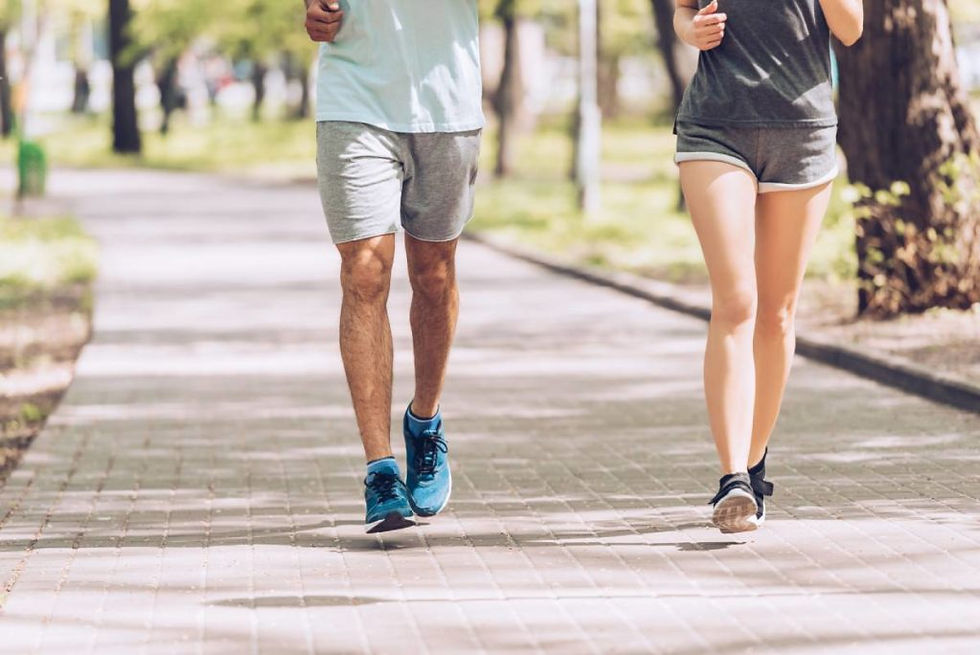ESSENTIAL MARATHON TIPS : READ BEFORE YOU RUN !
- Team PhysioQinesis : Credit Viraj Shah
- Dec 29, 2023
- 3 min read

Introduction
Running a marathon is a challenging yet rewarding endeavor that requires not only physical endurance but also careful consideration of the gear you wear and carry. The right clothing, shoes, and accessories can make a significant difference in your comfort, performance, and overall experience during a marathon. In this blog, we'll explore the essential items you should prioritize when gearing up for a marathon.
Important Points to Remember for Marathon Training:
1. Avoid trying new approaches or techniques during the actual race; stick to what has been practiced during training.
2. Maintain consistency in your attire by wearing the same clothes, shoes, and socks used during running sessions while training.
3. Pre-rehearse your nutrition plan before and during the marathon to ensure it aligns with your body's needs.
4. Be aware that certain electrolytes and foods may not be suitable for you while running, so it's crucial to practice incorporating them into your routine before the marathon event.
Clothing:
· Moisture Free Attire:
Choose clothing made from moisture-free materials to keep sweat away from your body. This helps prevent chafing and keeps you more comfortable throughout the race. Before participating in a marathon, ensure that any new clothes intended for use are washed beforehand, as they may have lubricant residue. opt for dry and clean attire to enhance comfort and performance during the race.
· Compression Gear:
Compression shorts, shirts, or socks can provide support to your muscles, improve blood circulation, and reduce fatigue. Many runners find them beneficial during long races like marathons.
· Layering Options:
Check the weather forecast for race day and dress accordingly. Opt for layering options, such as a lightweight jacket or arm warmers, that you can easily shed if you get too warm.
· Well-Fitted Clothing:
Avoid loose or overly tight clothing that can lead to chafing or discomfort. Test your race-day attire during training runs to ensure a proper fit.

Shoes:
· Properly Fitted Running Shoes:
Invest in a pair of running shoes that are specifically designed for your foot type and running style. Visit PhysioQinesis for more detailed assessment of shoes.
· Break Them In:
Avoid wearing brand-new shoes on race day. Make sure your running shoes are broken in and have been worn on several training runs to prevent blisters and discomfort.
· Consider Insoles:
Depending on your foot structure, you might benefit from custom insoles or inserts. Consult
PhysioQinesis to determine if this is necessary for you.
Accessories:
· Dry Tech Socks:
Just like your clothing, opt for moisture-wicking socks to keep your feet dry and reduce the risk of blisters. Consider bringing an extra pair to change into if needed.
· Hat or Visor:
Protect yourself from the sun with a breathable hat or visor. It can also help keep sweat out of your eyes, improving visibility and comfort.
· Hydration Belt or Pack:
Staying hydrated is crucial during a marathon. Choose a comfortable hydration belt or pack to carry water or sports drinks, especially if the race doesn't have frequent water stations.
When selecting a bottle, consider factors like capacity, comfort, ease of use, and whether it allows for efficient drinking while running.
· Electrolytes: Important for balance in body
· Hydration Shots: Portable, concentrated.
· Hydration Belts: Convenient for shorter distances.
· Hydration Vests: Even weight distribution, suitable for longer races.
· Coconut Water: Natural electrolytes, refreshing.
· Electrolyte Tablets: Customizable electrolytes.
· Energy Gels: Convenient, quick energy.

Nutrition:
Nutrition is crucial for marathon running, providing essential fuel for sustained energy, muscle support, and hydration. A well-balanced diet, with a focus on carbohydrates and protein, helps maintain performance and prevent fatigue. Adequate pre-race fuelling and on-the-go nutrition during the marathon are essential for optimal endurance and recovery. Ignoring these nutritional aspects can compromise stamina and increase the risk of injury, emphasizing the vital role nutrition plays in marathon success.
Pack energy gels, chews, or any preferred fuel for sustained energy during the race. Experiment with different options during training to find what works best for you. To gain further insights into nutrition, consult with a nutritionist at PhysioQinesis.
Conclusion:
Successfully completing a marathon involves more than just physical fitness; it requires careful planning and consideration of the gear you'll wear and carry. Invest in high-quality, comfortable clothing and shoes, and don't forget essential accessories like a hydration system and nutrition. Testing your gear during training runs will help ensure a seamless and enjoyable marathon experience. Ultimately, finding the right balance of comfort and performance in your gear can make all the difference on race day.
Good luck!!!




Comments